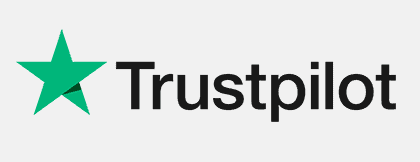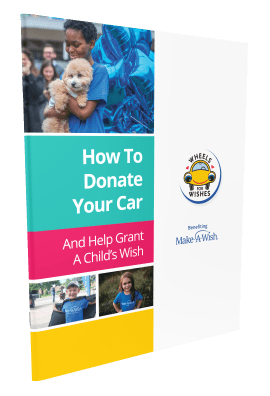
Reduce Your Cancer Risk Through Diet, Lifestyle, And Preventative Measures
February is National Cancer Prevention Month, and it’s easy to participate by learning about cancer prevention and helping to inform others about diet, lifestyle, and other factors that may contribute to cancer. Many lifestyle choices and risk factors can affect your cancer risk, and Cancer Prevention Month is a time to remind people that cancer can happen to anyone at any time throughout their lives.
National Cancer Prevention Month
Just in time to help you achieve your New Year’s resolutions, Cancer Prevention Month is about eating healthy, exercising, and maintaining a healthy weight. The American Institute for Cancer Research (AICR) recommends eating mostly plant foods and limited red meat, especially processed meat. They also recommend daily physical activity of at least 30 minutes or more, and maintaining a healthy body mass index.
AICR points out that not only do the guidelines for cancer prevention reduce your cancer risk, but also other chronic diseases such as diabetes and heart disease. Plus, you’ll feel great and have more confidence.
Choose Plant Foods
While a vegetarian diet can greatly reduce your risk of cancer, heart disease, diabetes, and other chronic illnesses, you don’t have to be completely vegetarian to receive all of the health benefits of choosing a plant-based diet. Even limiting your meat intake can play a positive role in your health.
AICR recommends eating no more than 18 ounces of lean cuts of meat per week, and to completely avoid any processed meats such as ham, hot dogs, sausage, and bacon. The World Health Report (WHO) recently released a report stating that processed red meat causes cancer, and is as carcinogenic as smoking cigarettes. The largest amount of evidence that they found was the link between colorectal cancers.
Build Your Meals Around Your Veggies
Instead of building your meals around meat products, make plant foods the center of your meals. If you do choose to eat meat, eat only a small portion with your meals. Focus on fruits, vegetables, whole grains, beans, and healthy fats. Healthy fats include avocados, flaxseed and coconut oils, nuts and seeds, olives, organic peanut butter, organic tofu and soymilk, and fatty fish such as salmon, tuna, mackerel, herring, trout, and sardines.
As often as possible, avoid packaged snack foods, commercial baked goods, solid fats such as stick margarine or vegetable shortening, fried foods, pre-mixed products such as cake mix, and trans fats.
Get Your Daily Exercise
A healthy diet alone isn’t enough to cut your cancer risk, and physical activity is another important measure for prevention. AICR suggests exercising for at least 30 minutes per day, whether that includes biking, running, walking, dancing, yoga, or even vacuuming! If you can’t commit to 30 full minutes per day, try breaking it up throughout the day by going for walks over your lunch break or running up and down the stairs. You may even wish to look into a standing workstation.
In addition to daily physical activity, a healthy weight is very important for cancer prevention. Excess weight is linked to seven different types of cancers, including cancer of the esophagus, pancreas, colon and rectum, breast (especially after menopause), endometrium, kidney, thyroid, and gallbladder. Losing weight and physical exercise can reduce your risk of developing these types of cancers.
A normal body mass index is between 18.5 and 24.9, and underweight is any number below 18.5. A body mass index of 25 to 29.9 is overweight, and 30 and above is considered obese. Check your body mass index here. Body mass index is different for infants, preschoolers, and children or adolescents. View those numbers here.
Cancer Awareness Months
While cancer cannot always be prevented, you can do your best to reduce your risk by following these tips, which will not only reduce your cancer risk but also reduce your risk of other chronic medical conditions as well.
Unfortunately, cancer is very common. That is why your help is needed in order to make other people aware of the signs and symptoms. With awareness, we are able to inform other people about the risk factors, preventative measures, as well as the signs and symptoms of different types of cancers. With awareness, people are able to catch cancer in its earliest stages.
Check out our Cancer Awareness Ribbon Guide and share it with your friends and family so that everyone can be made aware of different types of cancers, and which colored ribbon is used to represent it.
Help Kids In Your Community
Cancer isn’t limited to adults. Children as well as adolescents can be diagnosed with cancer at nearly any age. According to the National Cancer Institute, childhood cancer is the leading cause of death by disease past infancy in the United States.
Wheels For Wishes supports reputable children’s charities in your area, helping to improve the lives of children with medical conditions or families with financial burdens. Support children’s charities in the New Year by donating a vehicle to Wheels For Wishes. At no cost to donors, we pick up or tow away vehicles to benefit children’s charities in your area. Check out our chapter list to see which children's charities benefit kids in your area.
When you donate a car to charity, you’re helping local kids, but you even get a tax deduction! To donate your car, truck, boat, RV motorcycle or other vehicle, please call us at 1-855-278-9474 or make your donation online. Your donation will make a difference in the New Year!







